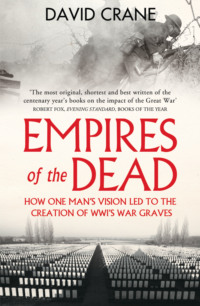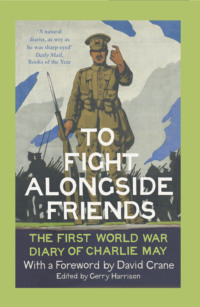
Полная версия
Lord Byron’s Jackal: A Life of Trelawny
One day I had a little girl for my companion, whom I had enticed from the nursery to go with me to get some fruit clandestinely. We slunk out, and entered the garden unobserved. Just as we were congratulating ourselves under a cherry-tree, up comes the accursed monster of a raven. It was no longer to be endured. He seized hold of the little girl’s frock; she was too frightened to scream; I did not hesitate an instant. I told her not to be afraid, and threw myself upon him. He let her go, and attacked me with bill and talon. I got hold of him by the neck, and heavily lifting him up, struck his body against the tree and the ground …
His look was now most terrifying: one eye was hanging out of his head, the blood coming from his mouth, his wings flapping the earth in disorder, and with a ragged tail, which I had half plucked by pulling at him during his first execution. He made a horrid struggle for existence, and I was bleeding all over. Now, with the aid of my brother, and as the raven was exhausted by exertion and wounds, we succeeded in gibbeting him again; and then with sticks we cudgelled him to death, beating his head to pieces. Afterwards we tied a stone to him, and sunk him in the duck-pond.5
Trelawny was five at the time of this incident, but there is no record of where it might have taken place. Judging from Adventures and the baptismal records of the successive children born to his increasingly gloomy parents, the Trelawny family lived a peripatetic life during his early years, moving between rented houses in the country, his maternal uncle John Hawkins’s seat at Bignor in Sussex and the family house of his grandfather, General Trelawny, at 9 Soho Square. When Trelawny was six his father had taken on the name of Brereton and with it a large fortune. Yet even with this new wealth there seems to have been no thought of an education for Trelawny and he grew up by his own account an intractable and surly boy, unloved and unloving, as large, bony and awkward as his mother and as violent in his moods as his father.
It was one of his father’s outbursts of temper that led, when he was about nine or ten, to his being literally frog-marched with his older brother Henry, to a private establishment in Bristol for his first experience of school. It was a bleakly forbidding building, enclosed within high walls and, to a child’s eyes, more like a prison. ‘He is savage, incorrigible! Sir, he will come to the gallows, if you do not scourge the devil out of him,’6 was his father’s parting injunction to the headmaster. The Reverend Samuel Seyer, incongruously small, dapper and powdered for a man who was a savage disciplinarian even by the standards of the day, eagerly embraced the advice. As a pupil of his, Trelawny later recalled with a nice discrimination, he was caned most hours and flogged most days. It was when he finally turned on his attackers, half-strangling the under master and assaulting Seyer himself, that he was sent home, as ignorant as the day he arrived two years earlier. ‘Come, Sir, what have you learnt,’ his father demanded of him.
‘Learnt!’ I ejaculated, speaking in a hesitant voice, for my mind misgave me as to what was to follow.
‘Is that the way to address me? Speak out, you dunce! and say, Sir! Do you take me for a foot-boy?’ raising his voice to a roar, which utterly drove out of my head what little the school-master had, with incredible toil and punishment, driven into it. ‘What have you learnt, you ragamuffin? What do you know?’
‘Not much, Sir!’
‘What do you know in Latin?’
‘Latin, Sir? I don’t know Latin, Sir!’
‘Not Latin, you idiot! Why, I thought they taught nothing but Latin.’
‘Yes, Sir; – cyphering.’
‘Well, how far did you proceed in arithmetic?’
‘No, Sir! – they taught me cyphering and writing.’
My father looked grave. ‘Can you work the rule of three, you dunce?’
‘Rule of three, Sir?’
‘Do you know subtraction? Come, you blockhead, answer me! Can you tell me, if five are taken from fifteen, how many remain?’
‘Five and fifteen, Sir, are – ’counting on my fingers, but missing my thumb, ‘are – are – nineteen, Sir!’
‘What! you incorrigible fool! – Can you repeat your multiplication table?’
‘What table, Sir?’
Then turning to my mother, he said: ‘Your son is a downright idiot, Madam, – perhaps knows not his own name. Write your name, you dolt!’
‘Write, Sir? I can’t write with that pen, Sir; it is not my pen.’
‘Then spell your name, you ignorant savage!’
‘Spell, Sir?’ I was so confounded that I misplaced the vowels. He arose in wrath, overturned the table, and bruised his shins in attempting to kick me, as I dodged him, and rushed out of the room.7
As the poet James Michie once remarked, the fact that a man lies most of the time does not mean he lies all of the time, but with Trelawny it is as well to be sceptical. There is no way of knowing whether this exchange, any more than the duel with the raven, actually occurred, and yet what is perhaps more important is that even as a history of Trelawny’s inner life Adventures needs to be treated with a caution that has not always been shown.
There is an obvious sense in which this same wariness has to be extended to all autobiographies, consciously or unconsciously shaping and selecting material as they inevitably do, but with Trelawny the timing of his Adventures makes it of particular relevance. There seems no doubt that the miseries he describes in its pages were real enough, and yet by the time that he came to put them in written form in 1831, the friendships of Byron and Shelley had armed him with a self-dramatizing language of alienation and revolt that enabled him to invest his infant battles with a stature and significance which seem curiously remote from the prosaic reality of childhood unhappiness.
For all that, though, it is clear that the young Trelawny felt and resented these indignities with an unusual intensity. There was an innate physical and mental toughness about him which equipped him for survival in even the most alien of worlds, and yet beneath a hardening carapace of indifference that sense of injustice and emotional betrayal which would fuel his whole life was festering dangerously. On his first night at school, as he lay on a beggarly pallet of a bed, the rush-lights extinguished, he had listened to the snores of his fellow pupils and stifled the sobs that would have betrayed his misery. The child who two years later escaped Seyer’s joyless and savage regime would allow no such weakness in his makeup, no vulnerability. Deprived of affection, he had learned the power of brute strength and domination, the virtue of self-reliance. He had become, he says in his richest Romantic strain, ‘callous’, ‘sullen’, ‘Vindictive’, ‘insensible’ and ‘indifferent to shame and fear’.8 ‘The spirit in me was gathering strength,’ he proudly recalled, ‘in despite of every endeavour to destroy it, like a young pine flourishing in the cleft of a bed of granite.’9
For a younger son of Trelawny’s class and educational inadequacy the options in life were strictly limited, but one of the more intriguing schemes for his future after this failure at school was Oxford and a career in the church. With a boy of thirteen who was still plainly gallows-bound, however, the navy offered a more traditional solution, and soon after leaving Seyer’s academy he was taken by his father down to Portsmouth and placed as a gentleman volunteer on the Superb under the command of a Captain Keates.
The treatment a volunteer of Trelawny’s age could expect in the Royal Navy during the time of the Napoleonic Wars would have varied with the personality of the ship’s captain, but even under the most enlightened and humane regime the life in the midshipman’s cockpit of a man-of-war was harsh and brutalizing. In the light of his fixed hatred of the service in later life, however, it is interesting that Trelawny’s first feelings for his new profession were ones of delight, and he soon had an unforgettable glimpse of the excitement and prize-money which made the wartime navy such a dangerous but attractive option to indigent younger sons. After a few days at sea, his ship crossed with the Pickle on its way back from Trafalgar, bringing to the stunned crew of the Superb the news of Nelson’s victory and death. The next morning they fell in with a part of the triumphant fleet, and Trelawny was transferred first to the Temeraire and then across to the stricken Colossus for its journey back to Portsmouth.
We had had a rough passage, being five or six sail of the line in company, some totally, and others partially dismasted. Our ship, having been not only dismasted, but razed by the enemy’s shots (that is, the upper deck almost cut away), our passage home was boisterous. The gallant ship, whose lofty canvases, a few days before, had fluttered almost amidst the clouds, as she bore down on the combined fleets … was crippled, jury-mast, and shattered, a wreck labouring in the trough of the sea, and driven about at the mercy of the wild waves and wind. With infinite toil and peril, amidst the shouts and reverberated hurrahs from successive ships, we passed on, towed into safe moorings at Spithead.
What a scene of joy then took place. From the ship to the shore one might have walked on a bridge of boats, struggling to get alongside. Some, breathless with anxiety, eagerly demanded the fate of brothers, sons, or fathers, which was followed by joyous clasping and wringing of hands, and some returned to the shore, pale, haggard, and heart-stricken. Then came the extortionary Jew, chuckling with ecstacy at the usury he was about to realise from anticipated prize-money, proffering his gold with a niggard’s hand, and demanding monstrous security and interest for his monies. Huge bomboats, filled with fresh provisions, and a circle of boats hung around us, crammed with sailors’ wives, children, doxies, thick as locusts. These last poured in so fast, that of the eight thousand said to belong at that period to Portsmouth and Gosport, I hardly think they could have left eight on shore. In a short period they seemed to have achieved what the combined enemies’ fleets had vauntingly threatened – to have taken entire possession of the Trafalgar squadron. I remember, the following day, while the ship was dismantling, these scarlet sinners hove out the first thirty-two pound guns; I think there were not less than three or four hundred of them heaving at the capstan.10
This passage is memorable enough for that exuberance and energy that made him one of the finest storytellers of the century, yet its real interest lies in the light it throws on an event which must in some way have shaped Trelawny’s whole personality and sense of self. Here was an occasion where Trelawny was in a sense there but not really a part, a figure hovering somewhere between participant and spectator at one of the great events of history, an innocently fraudulent beneficiary of the acclaim and excitement which greeted the shattered but victorious Colossus on its return to England.
For the rest of his days Trelawny would bitterly regret that he had missed the greatest battle ever fought under sail and the hurrahs of the ships’ crews anchored at Spithead lodged deep in his soul. Throughout the whole of his life the instinctive movement of Trelawny’s memory would always take him to the centre of great events, cavalierly annexing whole scenes and achievements as if they had been his own, and it was possibly here at Portsmouth, as a romantic and impressionable thirteen-year-old blending invisibly with the men who had won Trafalgar, that he had his first heady taste of that surrogate fame that would be the life blood of his adult existence.
If that is the case, his next years in the navy, from 1806 to 1812, must have been ones of bitter disappointment. By the time that Trelawny emerged from obscurity onto a public stage he had sunk their memory beneath the piratical fantasies that fill Adventures, but in the muster books and logs of Admiralty records his life as a volunteer and then midshipman stretches out from ship to ship in a sobering and unbroken line which leaves no room for romance, ambiguity or fulfilment.*
There is no historical document at once so dry and compelling as a ship’s log, nothing that better evokes the routine, discipline and anonymity Trelawny came to hate, but there was another reason, too, for his growing resentment that no mere record could show. ‘Who can paint in words what I felt?’ he asked of his readers later,
Imagine me torn from my native country, destined to cross the wide ocean, to a wild region, cut off from every tie, or possibility of communication, transported like a felon as it were, for life, for, at that period, few ships returned under seven or more years. I was torn away, not seeing my mother, or brother, or sisters, or one familiar face; no voice to speak a word of comfort, or to inspire me with the smallest hope that any thing human took an interest in me … From that period, my affections, imperceptibly, were alienated from my family and kindred, and sought the love of strangers in the wide world …
I could no longer conceal from myself the painful conviction that I was an utter outcast; that my parent had thrust me from his threshold, in the hope that I should not again cross it. My mother’s intercessions (if indeed she made any) were unavailing: I was left to shift for myself. The only indication of my father’s considering he had still a duty to perform towards me, was in an annual allowance, to which either his conscience or his pride impelled him. Perhaps, having done this, he said, with other good and prudent men, – ‘I have provided for my son. If he distinguishes himself, and returns, as a man, high in rank and honour, I can say, – he is my son, and I made him what he is! His daring and fearless character may succeed in the navy.’ He left me to my fate, with as little remorse as he would have ordered a litter of blind puppies to be drowned.11
All the evidence suggests, in fact, that his father exerted whatever influence he had in his son’s favour. Trelawny’s career, however, was proof against help. The account he gave of this time in his Adventures is clearly heightened for effect, but his tales of brawls and endless hours of punishment at the masthead are endorsed by his long list of ships as one captain after another rid himself of a recalcitrant midshipman.
From the Colossus to the Puissant, from the Puissant to the Woolwich and on to the Resistance, the Royal William, the Cornelia and the Hecate; the list stretches out, each change marking another step in Trelawny’s disillusionment, another loosening of ties, a fresh confirmation as the surly boy grew into embittered manhood that there was nowhere he belonged.
After his sudden and dramatic baptism of 1805, there was also little action to alleviate the boredom of naval life. In the period immediately after Trafalgar he had gone on two long voyages to the east and South America, but it was not until 1810 – five years and ten ships after going to sea on the Superb – that the amphibious assault on the French-held island of Mauritius gave him his first hope of the excitement he craved.
As it turned out, the defendants offered virtually no resistance to the massive force which had been assembled, but the attack on Java in the following year – one of the forgotten classics of British arms – at last brought the nineteen-year-old midshipman into a war that, with only a brief respite, had been going on since the execution of Louis XVI just two months after Trelawny’s birth.
The fleets carrying the combined army of native and European troops had sailed from Madras and Calcutta, with the Commander in Chief, General Auchmuty, and the Governor-General, Lord Minto, aboard the HMS Akbar on which Trelawny served. After a fraught passage south the invasion force was landed on 4 August 1811 at Chilingching, and marching eastwards through a heavily cultivated landscape of ditches, water tanks and dykes which reminded Minto of a Chinese wallpaper, entered Batavia only to find its defendants withdrawn behind the strongly fortified Lines of Cornelis some six miles to the north.
On 26 August, under the brilliant leadership of Colonel Rollo Gillespie, and supported by naval guns dragged overland and fired by sailors, the lines were stormed and the campaign effectively brought to a conclusion. By that time, however, Trelawny’s role in the victory was over. Sometime before the final assault, his gun party had been surprised on the approach to Cornelis, and in the skirmish which followed he received a sabre slash across the face and a musket ball which remained in his leg for over thirty years until it was removed without anaesthetic by an Italian surgeon under the impressed gaze of Robert Browning.
Java was Trelawny’s first experience of warfare on any major scale with the navy, and his last. Taken back to the Akbar, he soon went down with the cholera that swept through the invasion force, killing more than two hundred sailors. He was lucky to survive, but it marked the end of his career. By the August of 1812 he was back in England, and three years later finally discharged from the navy without a commission, a midshipman sans prospects, education or even the halfpay of a lieutenant, one more ‘useless Dick Musgrove’ left high and dry by the coming of peace.
When Trelawny came to write about his career in the navy, he was again to invest his adolescent anger with all the political and revolutionary radicalism that coloured his schoolday memories. At the age of twenty-three, however, there can have seemed nothing glamorous to him in failure. The knowledge we have of him in these years after he returned from the east is admittedly of a fragmentary and rather special kind, yet the few clues that do survive suggest a far more conventional and vulnerable personality than the man who finally emerged from obscurity to stake his claim as one of the century’s most defiant rebels.
The first of these is no more than a footnote, but it is nevertheless interesting that, in these first years of peace, he seems to have gone out of his way to assert his naval credentials. In the confident pomp of his later Adventures he might denounce the service as an instrument of arbitrary despotism, and yet, far from rejecting it at the time, he masqueraded in civilian life under the name of ‘Lieutenant’ Trelawny, a rank to which he had no claim and one the mature Trelawny would have despised.
For a young man of his temperament and background, coming to terms with the blank mediocrity of his prospects, this discreet and venial piece of self-promotion is neither very unusual nor important, but the same years throw up another clue to his personality which is best recorded in his own words.
The fatal noose was cast around my neck, my proud crest humbled to the dust, the bloody bit thrust into my mouth, my shaggy mane trimmed, my hitherto untrammeled back bent with a weight I could neither endure nor shake off, my light and springy action changed into a painful amble – in short, I was married.12
It is as much a truism of biography as it is of fiction that domestic happiness leaves little trace of its presence, and so it is perhaps not surprising that we know what we do of Trelawny’s marriage only because and when it failed. His bride, Caroline Addison, was the eighteen-year-old daughter of an East India merchant, a girl of a family ‘fully the equal of his own’13 as he defensively told his uncle John Hawkins, attractive, ‘accomplished’ and, from the slim evidence of her surviving letters, in love with the tall, handsome midshipman that the ungainly lout of a boy had become.
In spite of the conventional claims he made for his wife’s pedigree, the marriage marked another step in Trelawny’s alienation from his parents. ‘My father was never partial to me,’ he later wrote to John Hawkins, touchingly but unsuccessfully eager to preserve some contact with at least part of his family,
& from the moment of my mariage discarded for ever me, and my hopes, nor has he since either pardoned or even allowed my name to be mentioned in his presence.14
The Addison family were clearly as opposed to the union as Trelawny’s because with the single exception of the bride’s uncle there was nobody from either side at the wedding that followed their brief courtship. They were married on 17 May 1813 in St Mary’s Paddington and, after an initial period living in Denham and London, moved first to lodgings in College Street, Bristol, in January 1816, and then in the July of the same year to board with a Captain White and his family at Vue Cottage near Bath.
It was from this house on 31 December 1816, just three and a half years and two daughters after their marriage, that Caroline Trelawny eloped to Southampton with a Thomas Coleman, a Captain in the 98th of Foot. In the immediate shock of betrayal Trelawny spoke and wrote wildly of a duel, but as with everything else in his early life reality lagged dully behind and in the summer of 1817 he began instead a long and public haul through the civil and ecclesiastical courts that only ended with the royal assent to an Act of Parliament permitting his divorce and remarriage in May 1819.
There is something in the very nature of divorce testimony which exposes a side of life that history scarcely notices, and through the evidence of the landladies and servants during these trials we have a squalid picture of a life that must have been the opposite of everything the young Trelawny craved. Even the geography of his betrayal has a sadly ignoble feel to it. His wife’s affair with Coleman had begun at their lodgings in Bristol, where the Trelawnys had the first floor, consisting of a drawing room and adjoining bedroom. At the end of March 1816, Captain Coleman, a much older man, arrived, renting a parlour and bedroom on the ground floor beneath. At the hearing in the Consistory Court, the Trelawnys’ landlady, Sarah Prout, described her own discovery of what was going on in the house.
Shortly after Captain Coleman came to lodge in her House, Mrs Trelawny formed an Acquaintance with him unknown to her Husband. Captain Coleman occasionally lent the Deponent (Sarah Prout) Books, but she, having but little time for reading, lent them to Mrs Trelawny, who, as the Deponent afterwards discovered, used to send Margaret Bidder the Servant to Captain Coleman’s Apartments to return or change the Books, and sometimes went herself for that purpose; and it was by these means, as the Deponent believed, that the Acquaintance between them first commenced. The Deponent further saith that by reason of what she will hereafter depose, she verily believes that the Acquaintance between Mrs Trelawny and Captain Coleman led to a criminal Intimacy between them, and that they were guilty of many improper Familiarities with each other … One evening … the Deponent went out to take a walk, and returned about eight o’clock in the Evening: Candles were usually brought and the Window Shutters closed in Captain Coleman’s Parlour before this time, and they were so upon the present Ocasion, but as the Deponent was waiting for the Street Door to be opened she observed the Shutters to be not quite closed, and the Blinds within to be not quite drawn down; and on then looking through the opening the Deponent by the light of the Candle saw Mrs Trelawny reclining on the Sofa on the left Arm of Captain Coleman, whilst his right Hand was thrust into her Bosom and he was kissing her. The Deponent, on the street door being opened, went up Stairs, and almost immediately afterwards heard Mrs Trelawny go up Stairs from the passage as if she had just entered the House, and go into her Bed Room as if to take off her Bonnet after a Walk, Mr Trelawny being, as the Deponent at that time observed, reading in his own Room … 15
For all the conventionality of its phrasing, Sarah Prout’s testimony provides a sadly absorbing insight into a world poised between a Rowlandsonesque coarseness and an encroaching moral censoriousness. It is not clear from the evidence how much Trelawny himself suspected, but shortly after Coleman’s arrival there had been a row over a handkerchief which uncannily echoes the casus belli in Trelawny’s favourite Othello. Another incident followed soon after when Caroline Trelawny was forced to hide in Coleman’s bedroom on the arrival of some of his fellow officers. Then, one evening at the beginning of June, Trelawny tried to persuade his wife and landlady to join him at the theatre, one of his favourite activities. Caroline refused and he went on alone. Once he had left the house, Caroline suggested to Mrs Prout that the two of them should go instead to the Circus, ‘another place of Theatrical Amusement at Bristol’:







